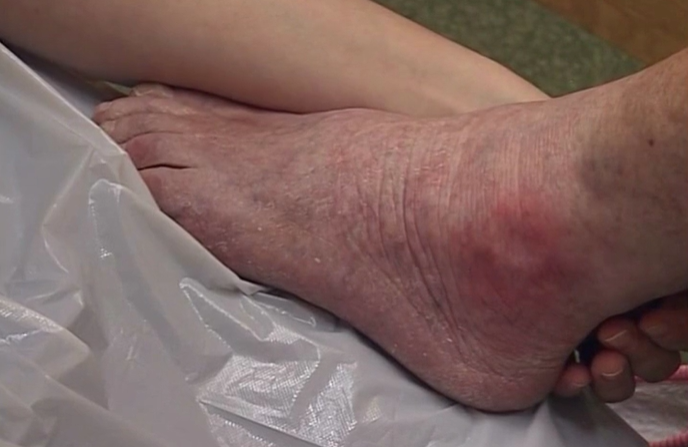
Pressure ulcers are potentially avoidable if carers have the correct understanding about their causes and how they can be prevented. This title aims to improve pressure ulcer prevention awareness for carers who work in all social care and healthcare settings. It starts by explaining how the skin can be affected by different types of forces, such as pressure, shearing force and friction. It then goes on to demonstrate how pressure ulcers develop and how they can be prevented.
Practical in nature, it also considers how to recognise the start of a pressure ulcer, which areas are most susceptible from pressure damage, teaching service users to inspect their own skin for early signs of pressure ulcers and the consequences of allowing pressure ulcers to go untreated.
Pressure ulcers are potentially avoidable if carers have the correct understanding about their causes and how they can be prevented. This title aims to improve pressure ulcer prevention awareness for carers who work in all social care and healthcare settings. It starts by explaining how the skin can be affected by different types of forces, such as pressure, shearing force and friction. It then goes on to demonstrate how pressure ulcers develop and how they can be prevented.
Practical in nature, it also considers how to recognise the start of a pressure ulcer, which areas are most susceptible from pressure damage, teaching service users to inspect their own skin for early signs of pressure ulcers and the consequences of allowing pressure ulcers to go untreated.
Featured Review

Overview
This online training course has been designed specifically for Care and Support Workers working in a social care setting. It may also be useful to a wider audience of people who would like to know more about Pressure Ulcer Prevention.
8 Interactive Chapters, Assessment Quiz and a CPD Accredited Certificate
Subjects covered include:
- How do Pressure Ulcers Occur?
- Pressure Ulcer Risk Factors
- Common Sites for Pressure Ulcers
- Preventative Care
- Pressure Relieving Devices
England
Health and Social Care NOS Units 216, 217 & 358
RQF: T/601/8721 Undertake agreed pressure area care (Diploma Level 3)
Wales
All Wales Induction Framework for Health and Social Care (AWIFHSC) Section 3
Scotland
The Health and Social Care Standards
Northern Ireland
NISCC’s Induction Standards
Trudie Young, RMN, RGN, Dip N, BN, MSc, Director of Education and Training, WWIC
Trudie Young is an esteemed course consultant at CareTutor specializing in the “Pressure Ulcer Prevention” course. With an impressive background and extensive experience in the field, Trudie brings a wealth of knowledge and expertise to the program.
Trudie has been an integral part of WWIC since its inception, previously serving as a Lecturer in Nursing and fulfilling the role of a Tissue Viability Nurse in North Wales. As the consultant, Trudie takes charge of planning and delivering education and training within WWIC, ensuring the development of innovative and highly regarded educational programs with a global reputation. Additionally, Trudie serves as the lead Tissue Viability Nurse for the Velindre Cancer Centre in South Wales.
Having started her career as a Tissue Viability Nurse and nurse lecturer in 1991, Trudie holds a remarkable academic background. She possesses a diploma and degree in nursing, a master’s degree in clinical research, and a postgraduate certificate in education. Trudie has gained extensive experience in various aspects of tissue viability, including clinical practice, education, and research. This is evident in her impressive portfolio of publications and contributions to national and international guidelines.
Trudie’s dedication to improving wound care delivery and patient outcomes is evident through her active involvement in various wound care organizations. She has served as the Chair of the Scientific Committee of the European Pressure Ulcer Advisory Panel and the Chair of the UK Tissue Viability Society. Within Wales, Trudie has held the position of Chair for the All-Wales Tissue Viability Nurses Forum. Trudie’s commitment to education extends to her role as an Honorary Senior Lecturer at Cardiff University’s School of Medicine, where she imparts her expertise in tissue viability. She has also contributed to the academic community as an external examiner for universities in the UK and Ireland.
With a nursing career spanning back to 1979, Trudie currently works as a tissue viability nurse with Velindre NHS Trust. Her dedication to advancing wound care practices and her active involvement in various professional networks highlight her passion for improving patient outcomes.
